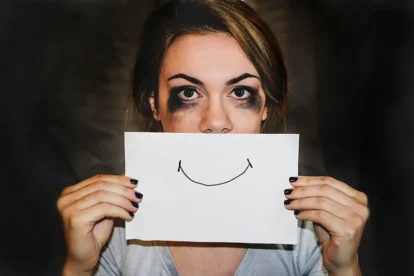Finding Support and Healing: Navigating Grief and Alcohol Abuse in the Journey Through Loss

Drinking to cope with a loss is not unusual. Many people turn to substance use to numb complicated feelings. It may not become an issue for everyone, but in general, alcohol and grieving do not mix. Emotional drinking only masks a real problem that requires time and reflection. Excessive alcohol consumption can damage relationships and cause other problems. It can also lead to addiction and health issues. The answer to managing grief is time, and for some people, therapy and professional support.
The loss of a loved one is a terrible event. The grief you feel may be intense and overwhelming.
Grief can cause hopelessness, sorrow, depression, guilt, and other difficult emotions. Recovering from a loss is a matter of time, patience, support, and healthy coping strategies.
It is this latter factor, coping, that leads many grief-stricken people down a precarious path. Turning to a drink to deal with a loss may seem harmless at the moment, but it is a slippery slope.
One drink can become a habit, causing a range of problems that only worsen grief and stall your healing.
Who Uses Alcohol To Cope and Why?
People drink for many reasons. Moderate social drinking or even the occasional drink to deal with a bad day is not problematic behavior. When you regularly turn to alcohol to cope with a difficult situation, such as a loss, it becomes an issue.
You may turn to alcohol for many reasons, but in grief, it’s all about coping. You’ve had a terrible blow that is difficult to grasp and harder to face head-on. By drinking, you may think you can blunt your feelings, escape, or get through difficult situations, like telling others or making funeral arrangements.
One study found that men are more likely to turn to alcohol when grieving. They are also more likely to die during a period of grief. This statistic may be related to substance abuse.
While men have always been bigger drinkers, recent studies have found that women are quickly closing the gap. In some age groups, they even drink more than men. This research also indicates that women increasingly drink to cope with mental illness, trauma, or grief.
Alcohol for Comfort Can Lead To Addiction
Any problematic or heavy drinking can lead to addiction, but drinking away grief may put you at more significant risk.
Studies indicate that people who drink mostly to cope with an issue, like grief, have a higher risk of developing an alcohol use disorder.
What feels like a well-deserved way to cope for a night, or even a week or two, becomes a habit that rapidly turns into a problem. When drinking to cope, you risk turning every stressful situation or difficult emotion into an excuse to drink.
Alcohol Use Worsens and Triggers Depression
Even if you don’t slide into addiction with the habit of drinking to cope with loss, the use of alcohol is counterproductive. You may feel a lift in your mood or instant relaxation with a drink, but that feeling fades. The following day, you may feel not only physically sick but also ashamed, embarrassed, and depressed.
A significant correlation exists between depression and substance abuse. People with depression are more likely to develop a substance use disorder, but the opposite is also true. People who drink heavily are more likely to have depression.
If you have depression or are at risk, drinking to cope with a loss can trigger symptoms. Even if you do not have depression, alcohol on top of grief may lead to an episode of depression that lasts days or weeks. While going through grief, the last thing you need is additional mental health symptoms.
We're Here to Help. Call Today!
866-922-1350There Are Other Health Risks Associated With Drinking
Drinking to cope harms your mental health and can lead to addiction, but it also puts you at risk for physical health problems. Even short-term problem drinking can cause issues, such as sleep disruption and insomnia. Alcohol can interfere with other, healthier choices like eating well and exercising and lead to weight gain.
When you drink to distraction, you also put yourself at risk of having accidents and becoming injured. If you drink around people you don’t know or trust, you could end up in a situation that leads to assault or violence.
Drinking Helps You Avoid True Healing
A glass of wine, or three or four, is a quick fix only. It may help you feel better in the moment, but soon you’ll be back to square one. Even if you avoid some of the worst consequences of drinking to cope—depression, addiction, injuries—it prevents you from getting the help you need for grief.
Drinking is a damaging and temporary coping strategy. It can cause all kinds of problems, developing into a bad habit. It may provide you with a sense of relief, a way to forget about your loss, but this cannot last forever. Eventually, you will have to face the grief and learn to live without a loved one.
There Are Much Better Ways to Cope With Grief
Adapting and recovering after a significant loss is a lot more work than opening a bottle. You need time, patience, and a willingness to feel everything to cope. Grief is a process that alcohol only delays. By the time you admit to having a problem with drinking, you have two issues. You still need to cope with the grief, and you need to learn how to stop drinking.
A healthy way to cope with grief begins with acknowledging and accepting the loss and how you feel about it. Allow yourself to feel all the sadness, hopelessness, guilt, and other difficult emotions. Let go of expectations of how you should feel or what the grieving process should look like. Your journey is unique.
Also important during this time is contact with loved ones. Turn to your support network, including trusted friends and family. They can provide an ear to listen or just be there, so you feel less alone.
Take care of your physical health too, which means making healthy choices rather than turning to alcohol. Get enough sleep, eat well, and get exercise daily. When you feel good physically, you will be better able to cope mentally.
If grief persists, your bad feelings intensify, or you can’t function normally even months after the loss, you may need professional help. A therapist or a mental health facility can help you learn to accept your lost loved one and adapt your life while still remembering them.
Grief can quickly become or get confused with a mental health condition like complicated grief or depression. If you’re simply not coping, or your alcohol use has escalated, look for a good recovery center for professional support.
Alcohol as a Coping Strategy Is Nothing To Be Ashamed Of
If you did fall down the slippery slope of using alcohol to cope and now find you can’t stop drinking, there is no shame in asking for help. This scenario happens to many people, and your loved ones and professionals are ready to provide support.
The right recovery center will address both your addiction and grief to make sure you can return to your life with positive coping mechanisms, alcohol rehab, and a hopeful outlook. Grief is a terrible situation to be in, but it isn’t forever. Avoid alcohol and rely on healthy, productive support to get through this time.






